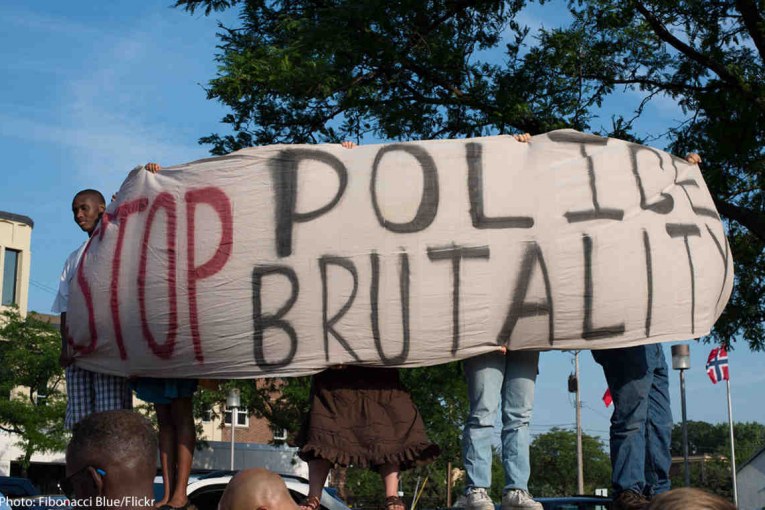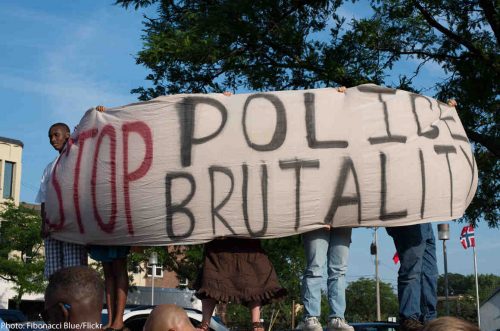

By Aliya Khan
A suspect in an armed robbery is sitting alone in a police department’s interview room. He takes out a knife and begins cutting himself with it, including his neck.
You would think that the police would recognize this as a mental health crisis, a potential suicide, a situation that demands careful, nonviolent de-escalation techniques to keep everyone safe.
But on Dec. 18 in Minneapolis, officers took another approach, with disastrous results. They tried to use a Taser on 18-year-old Marcus Fischer and then they shot at him. At least one bullet hit and wounded him, leaving Marcus in critical condition.
That response to a suicide attempt is terrifying. By using force, the police made the situation so much more dangerous.
And it wasn’t a one-time occurrence. Of the 14 Minnesotans shot and killed by police officers last year, nearly half were reportedly experiencing a mental health crisis. That matches up with police data from around the country. Going through a mental health crisis puts you at higher risk for police violence.
Just this past summer, Khaleel Thompson was shot multiple times by an officer in Crystal, Minnesota. Khaleel had a history of mental illness that police in Crystal were aware of. Like Marcus, he was left in critical condition.
Marcus and Khaleel are both people of color, making them even more likely to be targets of police violence. Being Black or brown multiplies the risk for people with mental illness or disability.
Both the Minneapolis and Crystal police departments have policies that encourage de-escalation strategies designed to avoid physical confrontation unless immediately necessary. But the policies 
don’t cover the special considerations necessary when someone is engaging in self-harm.
It is a natural impulse to want to stop someone from hurting themselves. However, when police intervene, they too often rely on their weapons instead of empathy and negotiation. The Police Executive Research Forum recommends that departments prohibit the “use of deadly force against individuals who pose a danger only to themselves.”
In such scenarios, the forum advises police “to exercise considerable discretion to wait as long as necessary so that the situation can be resolved peacefully.” Minneapolis police officers spent less than 10 minutes trying to de-escalate the situation with Marcus.
The Minneapolis police department is certainly not the only one failing to respond safely to mental health crises — this is a problem across the country. In the past year, police have killed people experiencing mental health crises in California, New York, Oklahoma, and Washington, among other states.
Our police departments must overhaul their training and protocols. A one-day course in de-escalation — like the one prepared for the Minneapolis Police Department — isn’t enough to prepare officers for dealing with mental health crises.
Training officers on crisis intervention should not be left to individual departments. It must be a core part of the curriculum at all police academies. Right now, police academies spend, on average, 15 times more training time on firearms and defensive tactics than on conflict management and mediation. That needs to change. The curricula must be revamped in keeping with approaches like Crisis Intervention Training and Critical Decision Model-Making, which have helped police departments that implemented them properly.
We also have to accept the limits of de-escalation and mental health training for police officers. While these strategies can improve interactions, officers aren’t the most qualified people to respond to a mental health crisis. Along with improving officer training, we must also fund alternatives to using the police to respond to mental health emergencies, like mobile crisis units and other community-based crisis services. Increased access to mental health and crisis response resources would help reduce the number of people experiencing mental health crises in the first place. There is no reason to wait for another person in crisis to be shot.
Aliya Khan is with the ACLU of Minnesota
